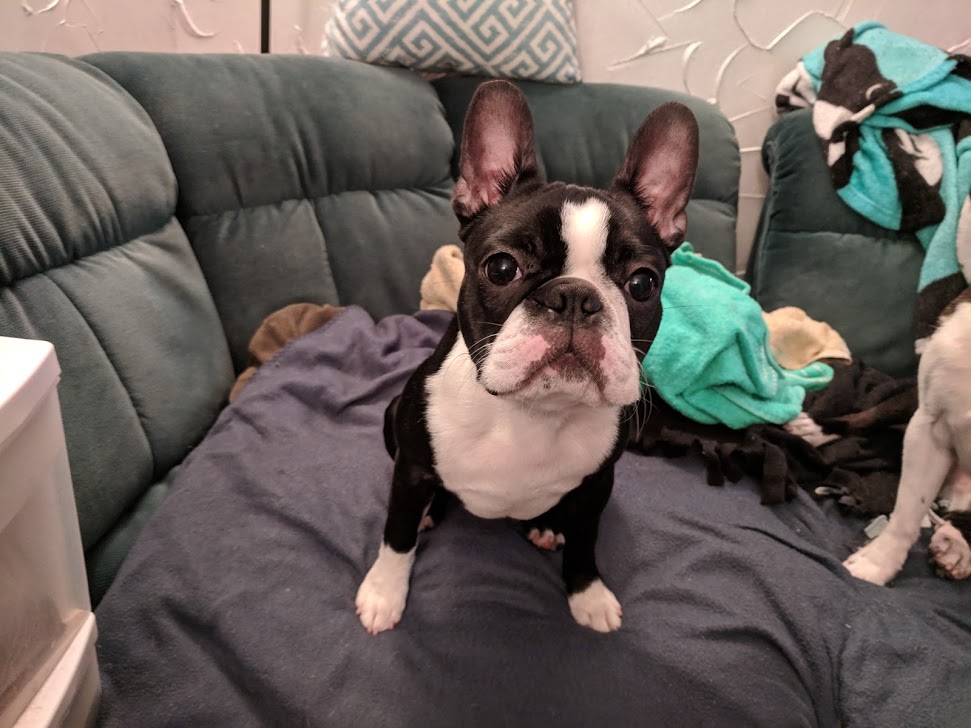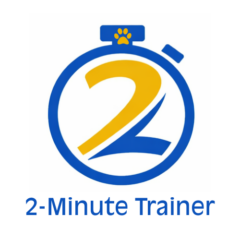Dogs, like people, are always making decisions. Which toy should I play with? Is this the best chewy toy in the house? Which bush should I pee on? She called me – should I “come?” The crux of positive reinforcement training is guiding dog decision making. Building the understanding that what you want, and what your dog wants, are the same thing.
We’ve talked before about dogs not caring about being “good.” They don’t even know what it is. Dogs will always do the “thing” that’s most valuable to them. It’s our job to build value in good decisions.
For example:
Fran’s 2-year-old Boston Terrier Simon doesn’t always love Hope’s 6-year-old French Bulldog Torque. For unknown reasons, he just rubs him the wrong way sometimes.
We watch the interactions between the two very carefully. During supervised play times, Simon wears a leash that Fran hangs onto. It’s not to drag him back, it’s to prevent contact. Torque will try and get away when Simon loses his temper. The leash is to make sure Simon doesn’t follow.
When Simon’s body language tells us that he might be taking umbrage, Fran calls him to her. She’s been doing this consistently. Last night we were delighted to see him make a wonderful decision. Simon was losing his cool, his hackles started to raise, he was staring at Torque. We saw it and Fran started calling Simon in a happy voice – one that he knows always results in rewards.
He thought about it. You could see him pause. And then he ran over to Fran, away from Torque, and was completely and thoroughly praised and rewarded.
Make it worthwhile

Would Simon have made the same, good decision, if it didn’t “pay?” He could very well have gotten supreme satisfaction from going after the other dog. He didn’t because he knew that Fran would praise him, play with him, and give him treats for going to her. It was more rewarding to Simon to be doted on. Good dog decision making, Simon!
That’s why you never call your dog to you for something he/she doesn’t like. If your dog hates getting a bath, go and get him/her. Don’t try to fool your dog, either. Don’t call him/her into the bathroom, give a treat, and then shove him/her in the tub. Not fair.
Never too late for training good dog decision making
Positive reinforcement, and 2-Minute-Trainer training games, are all about guiding our dogs into making the best choices. Being a “good dog” may not be something dogs understand. Getting rewarded is speaking their language. Dogs will repeat behavior that’s rewarded. They’re smart enough to discard what doesn’t work for them.
Your attention, treats, and play are all rewards your dog will try to get. When you witness your dog making a good decision, be sure he/she is lavishly rewarded. You can’t “spoil” your dog with praise, treats, or playtime.
There’s no such thing as too much praise for good behavior. If you slack off, or let good dog decision making go unnoticed, you’ll lose it. Dogs are wonderful, adaptable creatures. They’re also in the “what have you done for me lately” camp. If something that used to get rewarded no longer does, they’ll stop doing it.
